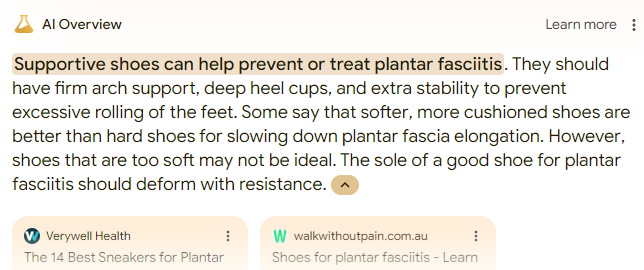Google Search's AI is (or should be) about cognitive load

my notes ( ? )
"Web search ... more like a rummage sale. Your chance of finding an item that addresses your specific issue... is pretty low. You’re not walking into a custom tailor. You’re in the thrift shop... seeing if you can put something together. Some sewing may be required."
This, of course, "is mentally taxing", so either they skim, adding to cognitive load, or just start reading. The author advocates his SIFT methodology, "a fast and frugal tree model which minimizes such cognitive load by serializing decisions to reduce the amount of material [a user] must hold in their head at one time.
AI search, of course, gives users what "we taught students to integrate ... giving them the “search result page vibe”... they could use that to ground the rest of their investigation", but while it could be "a good replacement for a step in getting an answer... It’s not a good answer... [because]:
- it’s an answer from nowhere" - is it credible? what are the sources? Noone knows
- it can be unclear
- when the user doesnt do the synthesis, they "miss important things", which is precisely why I do my syntheses myself rather than asking an AI to do it for me.
Most users, however, risk taking Google's answer as a good answer. After all, it's a lot less work. Better to "think of this as bundling up a current step of search that most people skip"
Read the Full Post
The above notes were curated from the full post mikecaulfield.substack.com/p/google-searchs-ai-is-or-should-be?utm_source=pocket_saves.Related reading
More Stuff I Like
More Stuff tagged myhub , search , ai search , synthesise , sift , knowledge management , ai
See also: AI Search , Digital Transformation , Personal Productivity , Innovation Strategy , Communications Tactics , Science&Technology , Business